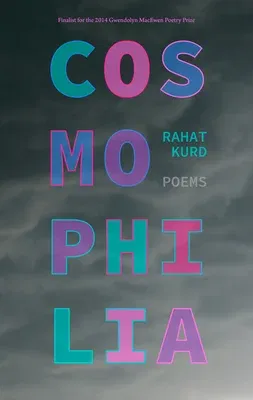What earthly use is the love of ornament? Slowing down to look closely
at an inherited shawl made by hand, the title poem in Rahat Kurd's
Cosmophilia traces an object of luxury to the traditionally male art
of Kashmiri shawl embroidery. The poet works with images from Kashmir,
her maternal family's place of origin, where the ability to make and
appreciate beautiful things is both absolutely essential and taken for
granted; where increasingly rare levels of artistic mastery are
simultaneously prized and trivialized; where the struggle to carry on
traditional art forms is strained by awareness of increasing
obsolescence, severe political repression, and environmental
degradation; a place both celebrated and dismissed as spectacle, as
"paradise on earth."
The question persists, throughout other poems in Cosmophilia, both as
self-reflexive creative practice and existential dilemma. On the
concrete streets of Vancouver, the anonymity and material ease of cities
tug at the poet's consciousness of frayed traditional ideals, both
philosophical and aesthetic. Religious language and rituals considered
in the aftermath of a marriage take on complex, subversive, and
irreverent layers in a seven-poem sequence. Allusive, playful
multilingual imagery inhabits long narrative meditations, free-form
couplets, and the traditional ghazal, in elegiac or sharply satirical
moods. Nastaliq, a centuries-old form of Persian and Urdu calligraphy,
speaks to the author through the smoke-damaged voice of a fading
celebrity confessional.
The emotionally powerful collection follows the elaborate, unexpected
turns of the poet's imagination, enlisting intricate details of memory
and language and the occasional plain truth - "the hard solitude of the
maker." They intertwine political conflict and family history; they
imagine Hamlet reluctantly confronting the partition of India and
Pakistan. Cosmophilia translates multiple glittering facets of Muslim
culture into, and reflects back from, the immediacy of embodied, urban
Canadian experience.

